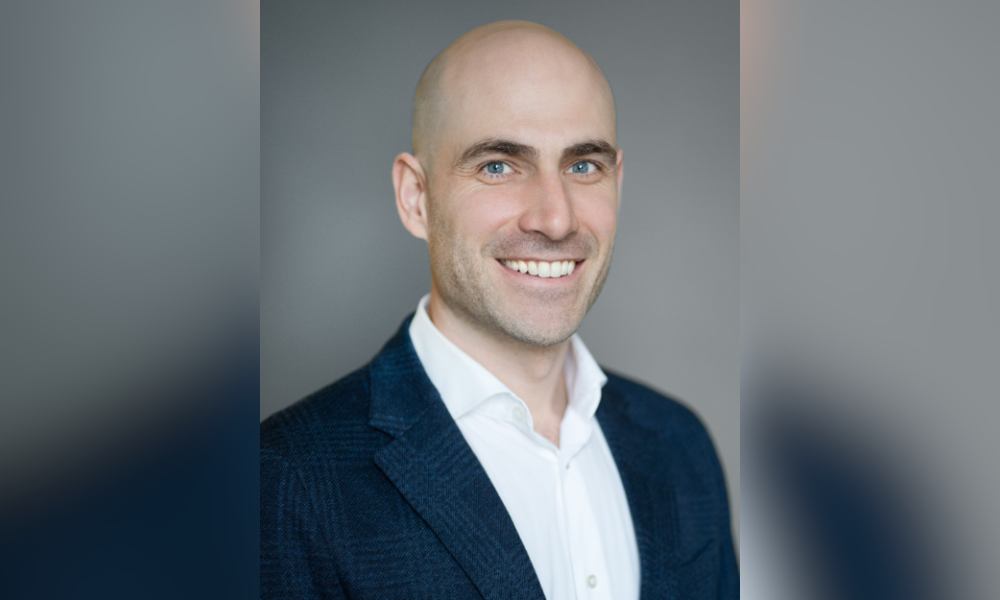CEO discusses why taking risks and facing setbacks is the pathway to 'outlier' results

This article was produced in partnership with Neighbourhood Holdings
It’s no secret that being a mortgage broker is no easy task. Brokers often find themselves wrestling with tough decisions, market volatility, and intense competition, and it’s easy to feel frustrated or defeated in a climate that seems stacked against success. But for Taylor Little (pictured), CEO at Neighbourhood Holdings, the difficult path is not just a necessary one—it’s the most rewarding.
“If you want to achieve average results, then just stay in your lane and play it safe. You will likely be fine,” Little tells CMP.
“But if you want outlier results, you have to take chances. A good practice is to run experiments, and lots of them. Pick the winners and double down. You'll be surprised at how quickly you will start to see real performance benefits with this approach.”
Embracing market challenges
In times of uncertainty, many brokers feel they’re at the mercy of the market. Little, however, views this as an opportunity to focus on what can actually be controlled.
“The first step is knowing that you are not in control of the market,” he says.
“That might sound like losing agency, but it is not - it should actually be empowering. All you can control is your reaction to this tough market.”
Little says that the next step is simply to trust yourself, and to take a difficult market as an opportunity to prepare for better times. That little project that you put aside during the busy period? Pick it back up. Use the slower time to improve your business, and you’ll be in a great position for the inevitable market comeback.
Finally, he notes that experiencing setbacks isn’t just inevitable—it’s essential.
“Recognize that everyone fails at something at some point,” Little says. Rather than focusing on the failure itself, he encourages brokers to think about how they respond to setbacks. This resilience can be a competitive edge.
“Most people don’t handle setbacks and failure well,” he notes. “So if you are someone who can consistently navigate through adversity, you will likely find yourself in an advantaged position because others do not share that same skill.”
Building a team that can weather the storm
For brokers who lead teams, fostering a resilient, adaptable culture is essential. In tough times, employees look to leadership not for grand speeches, but for authenticity and support. Little highlights that sharing your own vulnerabilities, demonstrating empathy and connecting with staff in-person beats motivational speeches over Zoom any day.
When it comes to developing the right skills in your team, Little notes that character qualities are ultimately the most valuable thing in the broker business. His top three that he looks for are: trust, curiosity, and grit.
“You need trust because you cannot supervise every aspect of someone's role,” Little says.
“You need to know your team has the back of the business and when confronted with a situation will operate from first principles if there isn't a clear answer on how to proceed.”
“Curiosity is a sign of intelligence and willingness to learn. It
“That is so important for that individual's career development, but also for the development of the business. Lastly, grit – because sometimes, you need your team to just bear down and get the job done. Sometimes conditions are not ideal for doing so, but someone with grit will find a way.”
Choosing the hard path
Little’s philosophy of embracing hard things isn’t just about weathering storms; it’s about actively seeking out challenges as a path to growth. For brokers who feel stuck or frustrated, this mindset can be transformative.
Start with small improvements, tackle the projects you’ve been putting off, and take risks that align with your long-term vision. As Little puts it: “Doing hard things means you are constantly learning and evolving.” And in an industry where adaptability and resilience are key, that’s a recipe for lasting success.
The takeaway? Don’t avoid the hard things—embrace them. They’re the building blocks of a resilient business, a stronger team, and a more fulfilled career.



